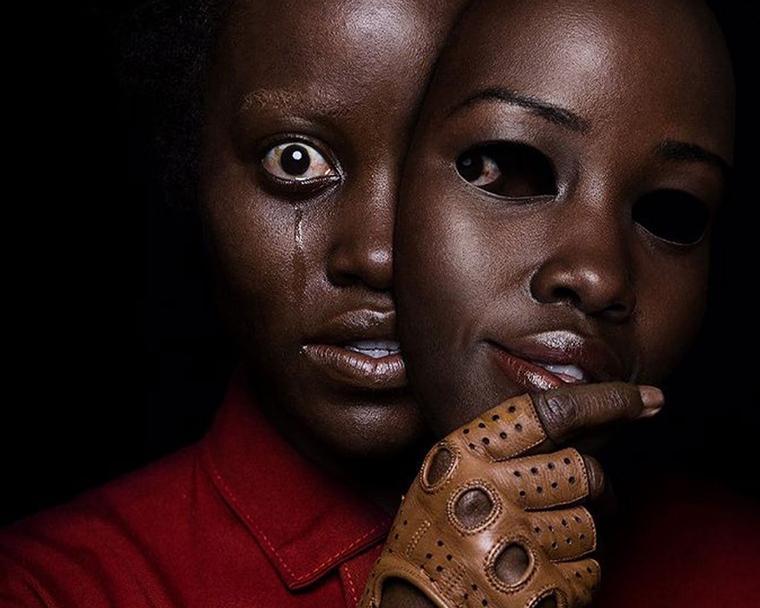
Uncanny Thinking
How the Covid-19 Pandemic Brings the Uncanniness of Horror Movies to Our Daily Lives
By Danielle Morgan
What a time to write about the things that unsettle us.
The “uncanny” is that which is strangely familiar – it unsettles us precisely because it is recognizable. Take Jordan Peele’s films, Get Out and Us, for instance. In both works the psychological horror the protagonists experience, and that we as viewers experience by proxy, emerges because it is so familiar. A normal relationship, a normal family, a normal car ride – all of these things are so familiar as to be rendered mundane and innocuous, until they aren’t anymore. The line between good and bad gets blurred, the protagonist screams into the void, and we are made to feel anxious and unsettled until we turn off our televisions or leave the theater and retreat to the comfort of our homes.
It’s a difficult term to define, uncanny. Some of its power, I think, comes from its expansiveness. We lack the words to define it precisely – and, indeed, it does seem to depend on each situation – but we know it when we see it and when we feel it. It’s that ick factor. It’s foreboding. Something has gone awry, even if we are the only ones who know it, and even if others refuse it or deny it.
I’ve been writing about theories of uncanniness in the twenty-first century, especially in consideration of African American comedy. I’m wondering what it means to write satire in a world that is increasingly self-satirizing. I’m thinking about the allure for many comedians to move away from comedy into the realm of horror – Jordan Peele’s films and his role as host in the reboot of The Twilight Zone; Chris Rock’s starring role in Spiral, the latest Saw film – and wondering why these satirists who typically wield jokes are now picking out new tools. Are there limits to our laughter and to the catharsis inherent in it, or to the critique funny satire can effectively wage? On the other hand, what does it mean that Charlie Brooker, creator of Black Mirror, recently noted that the dystopian series might be inappropriate in the midst of the Covid-19 Pandemic and is planning to engage a comedic writing bent?
We are living in uncanny times.
This uncanniness moves beyond the realm of the popular or film and literature alone. For those of us with the privilege to work from home, many of the checkpoints of normalcy remain. Yet against the backdrop of a global health crisis, the unsustainability of many of these expectations is cast into stark relief. We have meetings and check-ins with bosses. We teach, we research, we learn, we write. We scroll through social media and make connections with friends and loved ones. We pray. We care for children, for partners, and for parents. The days are long, but there isn’t enough time to do all we want to do or are expected to do, and somehow the stakes seem higher. Success in accomplishing these tasks might offer some normalcy or some momentary distraction. We’ve been told to take advantage of this uncanny moment. When we fall short, we feel it harder.
We’ve all seen the countless memes touting the pandemic – an actual global health crisis in which lives are daily lost – as a possible “blessing in disguise” that might somehow create the time and space for greater productivity. Gratefully, we’ve seen a good deal of pushback against those ideas in reminders that physical, mental, and spiritual survival is a gift and is enough. Sometimes we believe it. We turn off the television and the uncanniness remains.

I find Rebecca Bryant’s idea of “the uncanny present” here especially helpful. In her article, “On Critical Times: Return, Repetition, and the Uncanny Present,” she explains, “The uncanny present, as I use it here, refers to moments when the present that I usually do not perceive as such becomes anxiously visceral to us as a moment caught between past and future.” Bryant argues that crisis emerges where we become too aware of the present moment while also being unable to reckon with or imagine the future. Many of us find ourselves at this mid-point.
Identifying this moment as uncanny, as an instance in which business as usual is unsustainable, in which the present is too much and the future is unclear is critical. Be kind to yourself. In my classroom, virtual or otherwise, we practice an ethic of care. For us, that means believing that within our community of learners we are all trying our best and operating in good faith – we know what we know and we are learning to understand what we don’t. I’ve reminded my students, who are doing incredible work reading comedy in a moment when perhaps things are not quite funny and writing about trauma while processing their own, to be just as gentle with themselves as they are with their classmates. There is much we don’t understand about the present, and much we cannot anticipate for the future. We control what we can and must forgive ourselves what we cannot. I wish you well in the midst of uncanny times.
Images courtesy of Universal.
